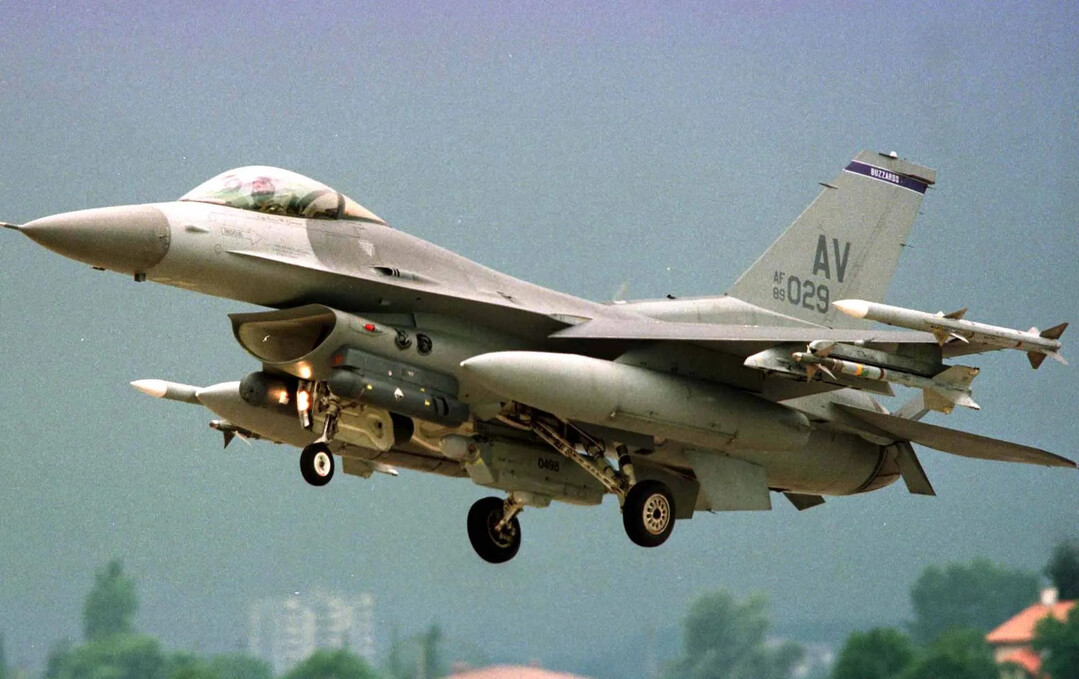
SINGAPORE – The Philippine Secretary of National Defense has expressed skepticism about a potential $5.6 billion purchase of US-made F-16 fighter jets, which was approved by the US State Department in April, stating that no decision has been made yet on the acquisition.
During a press conference at the Asia Security Summit (Shangri-La Dialogue) held in Singapore from May 31 to June 2, Philippine Defense Secretary Gilberto Teodoro stated that the Philippines has not yet received a formal offer to purchase the 4th-generation fighter jets. He added that even if an offer were to come, the Department of National Defense (DND) would not necessarily know if it wanted the aircraft.
"There's nothing for me to review," Teodoro said in an interview, emphasizing that discussions about purchasing F-16s were premature. He also dismissed the F-16 sale approval as "media hype" and did not explain why the US State Department had approved it earlier. "We have not yet decided when we are going to acquire a multi-role fighter, or what model," he said.
US F-16 Sale Approval and the Philippines' Practical Concerns
Earlier in April, the US State Department approved the potential sale of 20 F-16 fighter jets to the Philippines, including missiles, bombs, and other ammunition, totaling nearly $5.6 billion. This amount was expected to constitute a significant portion of the Philippine defense budget. According to the Stockholm International Peace Research Institute (SIPRI), the Philippines spends approximately $6 billion annually on defense (1.3% of its GDP). The F-16 purchase, amounting to the Philippines' annual defense budget, would inevitably impose a substantial financial burden on the Philippine government.
US Secretary of Defense Pete Hegseth visited the Philippines in March to strengthen alliances in preparation for competition with China. Hegseth and Teodoro met again in Singapore, where Hegseth warned that military threats posed by Beijing could be "imminent" and urged allies to increase defense spending.
For some Philippine officials, the F-16 fighter jet sale was seen as a symbol of long-term US commitment and confidence in the Philippine military's ability to handle advanced equipment. However, immediately after the announcement, other officials in the Philippines began to question how such a large-scale purchase could be afforded without US assistance. Last year, the US provided $500 million in long-term security assistance to the Philippines, but continued support would require additional legislative approval from the US Congress.
During the Biden administration, the US and the Philippines agreed on a "roadmap" for arms purchases over the next few years to modernize the Philippine military. This plan primarily consists of equipment to help monitor and protect the Philippines' vast coastline, and it did not include high-performance fighter jets. This background explains the Philippines' cautious stance on the F-16 purchase. The Philippines' defense modernization goal prioritizes strengthening its maritime surveillance and patrol capabilities to effectively defend its vast maritime domain and respond to illegal fishing and territorial disputes, rather than immediately acquiring expensive, state-of-the-art fighter jets.
South China Sea Territorial Disputes and the Philippines' Firm Stance
At the Shangri-La Dialogue, Secretary Teodoro engaged in a somewhat sharp exchange with the Chinese delegation, who posed critical questions about the Philippines' alliance with the US. Chinese coast guard vessels routinely harass Philippine vessels in the South China Sea. Beijing claims most of the South China Sea as its territory, despite a 2016 ruling by the Permanent Court of Arbitration under the UN Convention on the Law of the Sea (UNCLOS).
From the podium, Teodoro stated unequivocally that "China needs to build a lot of trust to be an effective negotiating partner," and that "we must tell it as it is." This clearly declared that the Philippines would not accept China's unilateral claims in the South China Sea and would adhere to a principled stance based on international law.
Due to its territorial disputes with China in the South China Sea, maritime security has become an urgent issue for the Philippines. While the air superiority provided by advanced fighter jets like the F-16 could contribute to strengthening the Philippines' long-term defense capabilities, the judgment seems to be that strengthening maritime surveillance and defense capabilities to respond to immediate threats is more pressing.
Economic Burden and Re-prioritization of Defense Strategy
The cautious stance on the F-16 purchase can be interpreted as part of the Philippines' effort to re-prioritize its defense strategy and address its geopolitical situation. The Philippines currently faces various security challenges, including terrorism threats and disaster response, in addition to the South China Sea territorial dispute with China. In this situation, it is highly probable that the decision was made to focus investments on assets that can respond to immediate threats, such as patrol vessels, maritime surveillance systems, and coastal defense missiles, rather than acquiring expensive advanced fighter jets.
Furthermore, the Philippines is seeking cooperation with other countries, not just the US, for defense modernization. For example, it is acquiring patrol vessels and landing ships from South Korea, thus strengthening its defense capabilities in various ways. This can be seen as part of a strategy to reduce defense dependence on a single country and to build defense capabilities more flexibly by securing diverse suppliers.
Ultimately, the Philippine Department of National Defense's current position reflects the Philippines' defense policy to prioritize efficient use of defense spending and responses to realistic security threats. While the F-16 purchase could contribute to the modernization of the Philippine Air Force in the long term, it is understood that a cautious approach is necessary given the Philippines' most urgent security issues and economic capacity. The future of the Philippines' acquisition of multi-role fighters, their scale, and the direction of its security cooperation with the United States remain to be seen.
[Copyright (c) Global Economic Times. All Rights Reserved.]






























